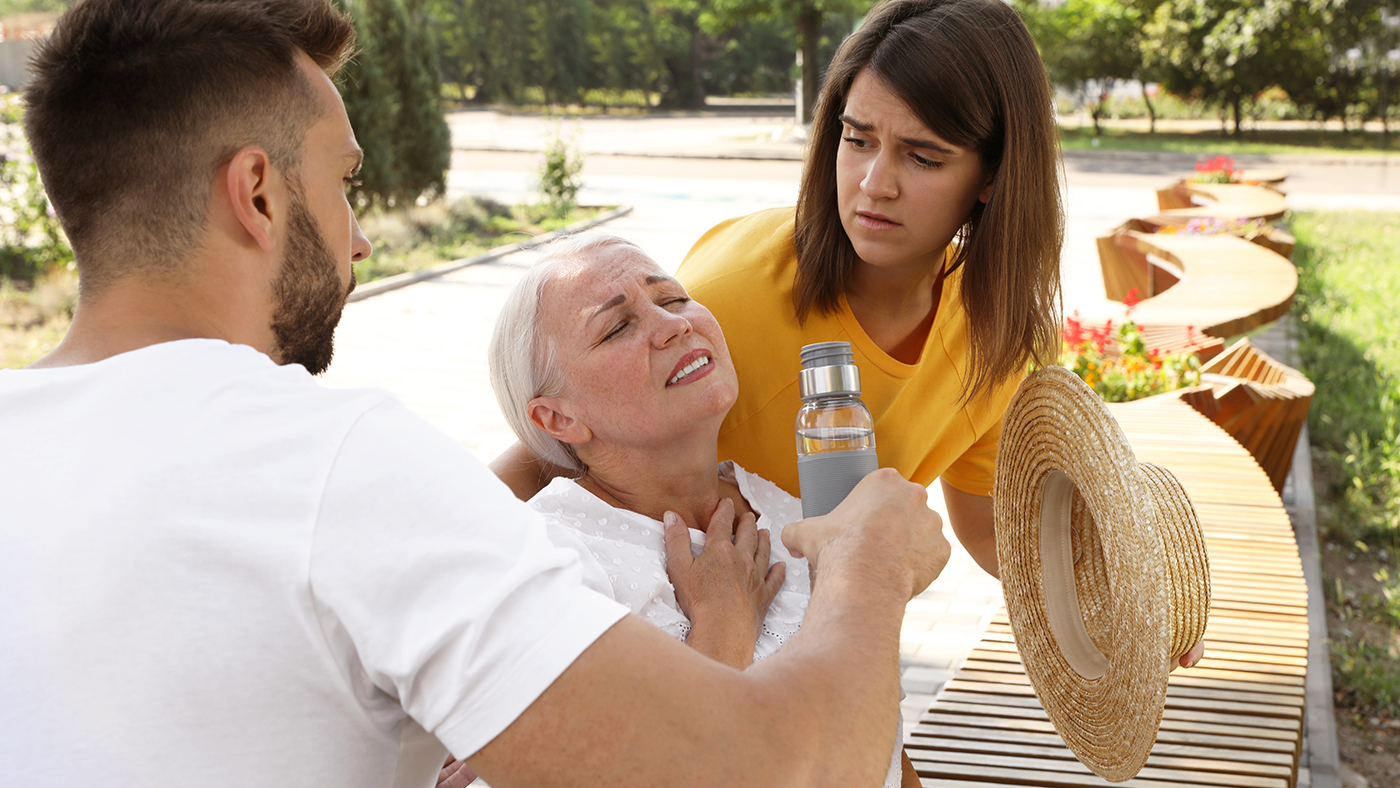Were you one of the roughly 150 million Americans who were under severe heat alerts last week? And yes, fall was approaching, but over the South and much of the nation’s midsection last week, summer did not want to let go, and it brought record heat to a lot of places.
“One of the challenges we face is the very low awareness about heat as a health risk.”
A health risk. Dr. Kristie Ebi at the University of Washington says many of us hear the warnings, you know, stay inside, stay hydrated, do outside work in the early morning, etc. So we hear those things, but we don’t think they apply to us. But the truth is…
“The list of the most vulnerable during a heat wave is quite long.”
That list includes pregnant women, very young children, people with chronic medical conditions, outdoor workers, and the list goes on. But she says among the most vulnerable to heat stroke are people over 60 years old. Now you would think that maybe older folks would handle heat better because they’ve had a lot of experience with heat waves in the past.
“But unfortunately, a natural part of the aging process is people become less well able to tell they’re getting into trouble with the heat.”
Or less willing to admit it.
“So even if they know that it’s hot outside, they don’t necessarily make changes in their behavior that would help prevent heat stress.”
Which can go right into heat stroke.
“Heat stroke is a medical emergency and requires immediate medical intervention, and even with medical intervention, the mortality rate is high, and people who survive heat stroke often have lifelong consequences.”
Officially, it’s estimated that heat kills about 700 Americans every year. Dr. Ebi thinks the actual number is much higher than that, but that most deaths could be prevented with more efforts at programs…
“To increase awareness of the health risks of heat.”
But Dr. Ebi says the effects of more frequent and more severe heat waves go far beyond posing possible medical problems for individuals.
“We also need to think of that environment. You have periods of very high temperatures. I live in the Pacific Northwest, that goes along with drought that goes along with wildfires, that affects air quality, and so you get these compounding and cascading risks that affect people but also affect livelihoods.”
Plus, of course, another effect.
“We’re seeing power disruptions with high temperatures.”
And of course, power brownouts and blackouts make it even harder for people to survive severe heat outbreaks. And Dr. Ebi says, until we do something about climate change, the heat situation is very likely to keep getting worse.


